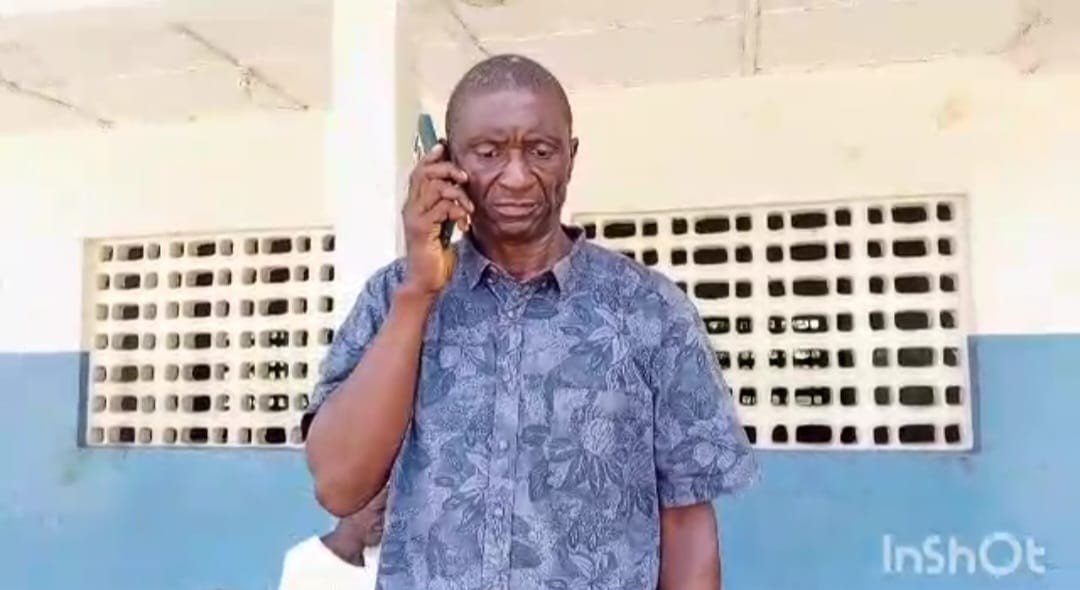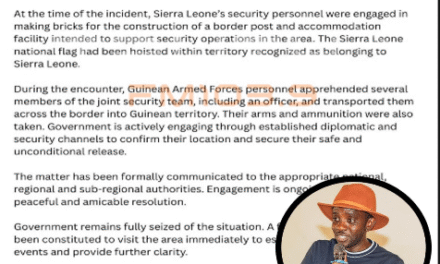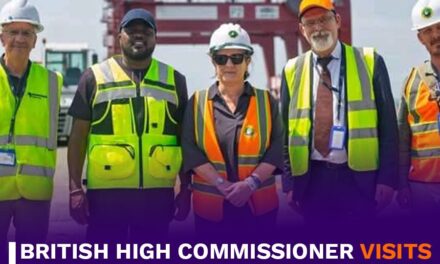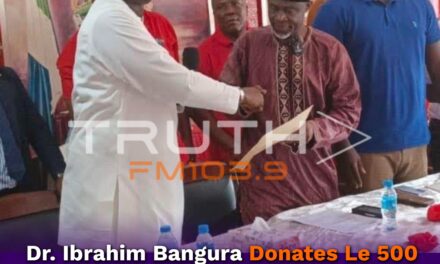By: Emmanuel Mbowa
Freetown, September 8th 2025- While the government continues to tout progress in radical inclusion, textbook distribution, and timely subsidies, a different reality unfolds inside Sierra Leone’s schools for the blind. Accounts from school heads in Kabala, Kono, and Freetown alongside findings from the 2025 Audit Service Sierra Leone reveal systemic failures that undermine these very efforts. The message is clear: despite policy promises, children with visual impairments remain underserved.
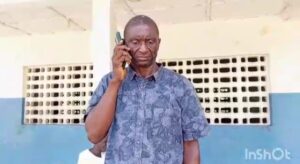
Alimamy Lahai Mansaray, Head Teacher of the Kabala School for the Blind
Each January, schools for the blind are meant to receive government subventions to cover basic operations. Yet, delays have become routine. Alimamy Lahai Mansaray, Head Teacher of the Kabala School for the Blind, recounts a five-month wait for funds. “We were the last to get our subvention. We did not receive it until the end of June,” he says. In the meantime, the school survived on credit borrowing food from local shopkeepers to feed students.
In Kono, Principal Philip Deen Sesay echoes the concern. “The funds are not commensurate with the cost of living,” he explains. The shortfall forces schools to rely on philanthropists to fill critical gaps from paying auxiliary staff to maintaining infrastructure and feeding students.
Beyond financial strain, the lack of essential learning materials especially braille resources poses a direct threat to education. Mansaray describes how his school improvises with “van cards instead of medulla papers” and uses frames and styluses to manually create notes. The government-provided braille conversion machine sits idle, rendered useless by the unavailability of compatible paper in Sierra Leone.
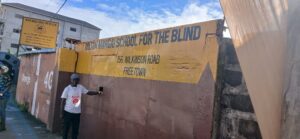
Milton Margai School for the Blind ,Freetwon
“To get the right paper, we’d have to order from South Africa,” Mansaray says. “But how is that possible when the fund can’t even address our basic needs?” The result is a compromised learning environment where students are denied the tools they need to thrive.
Sesay adds that modern learning demands modern tools. “Laptops would enhance fast learning,” he says, stressing the need for digital inclusion in blind education.
In Freetown, Salieu Turay, Headmaster of the Milton Margai School for the Blind, paints a grim picture of deteriorating infrastructure. “The school is old, the building is leaking, and that’s very disturbing,” he says. Feeding students is a daily struggle, and while nurses are assigned to the school, there are no medicines to support them.
“We appreciate that the government funds us,” Turay acknowledges, “but it’s not adequate.” He calls for deeper engagement with authorities to address inconsistencies and increase support. “Children with special needs require careful and full support,” he emphasizes.
The Audit Service Sierra Leone’s 2025 report concludes that the government “has not given priority to children with special needs.” The testimonies from school leaders reinforce this finding. From delayed subventions and inadequate braille materials to crumbling infrastructure and missing medical supplies, the Ministry of Basic and Senior Secondary Education (MBSSE) appears ill-equipped to deliver equitable education to this vulnerable population.
Despite their frustrations, school leaders remain hopeful. They are not asking for charity they are asking for consistency, dignity, and the resources to do their jobs. “We are a government-driven school,” Turay reminds. “We would like to engage with the government to ensure these children are not left behind.”
